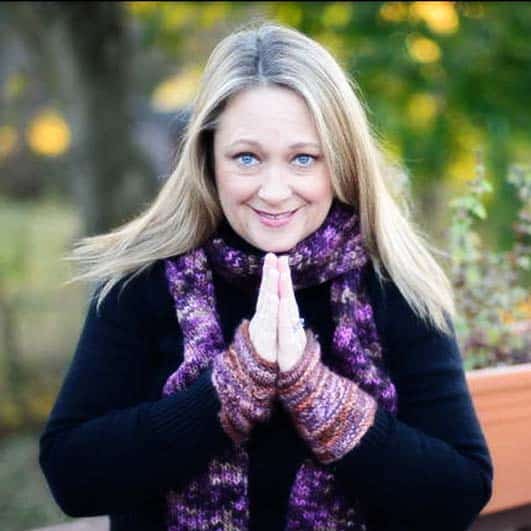People learn to meditate for many reasons: to calm anxiety, ease stress, be more productive at work, or less agitated at home.
It can take some effort to establish a daily meditation practice, but the payoff is priceless.
On good days, a regular meditation practice can help you savor all that life has to offer. On bad days, it can help turn down the intensity of difficult emotions, and even point you towards your own inner wisdom and insight for solving problems.
And there is no disputing the amazing impact meditation has on our health, including our heart, immune system, and mental health benefits, just to name a few.
Your Regular Meditation Practice After A Loss
But what about when the unthinkable happens? A loved one dies or receives a scary diagnosis. What happens to our meditation practice then?
For most of us with an established meditation practice, it changes. And this is okay. There are many ways to meditate. When we are deep in grief, some types of practice are more helpful than others.
The majority of people that I have worked with, including myself, have been unable to return to a seated meditation practice right away. Sitting still in mindful awareness when your heart is crumbling may be too overwhelming.
This is when we must remember that the first rule of mindfulness is to be kind to ourselves.
After all, if the point of meditation is to reduce suffering. We need to ask ourselves: “what do I need in this moment?” If we cannot answer that question, we could try the inverse: “what don’t I need in this moment?”
A Different Kind of Meditation
I can tell you firsthand that sitting still in wide-open mindful awareness was not what I needed in the months that followed my stepfather’s death. (Maybe it is exactly what you need, as we all experience grief in our own way.)
As the executor of his estate, I was dealing with a large house that contained his personal belongings as well as his photography business in the basement. It was a full-time job, and there were very few moments where I wasn’t thinking about him or facing my grief.
What I needed was a break. Some relief.
I found that through mindfulness of my body, but not in the traditional way. For some reason, I was inspired to pick up a tennis racket and hit balls against a wall for hours at a time. While not classic meditation, I used it as a mindful experience.
Paying attention to the sensations and my muscles and joints helped me come back to the present. It also gave me an opportunity to drop the story and intrusive images I was having.
This was my go-to practice for several months. Then I returned to yoga, and eventually mindfulness meditation.
Finding Your Way Through Grief with Meditation
If meditation is already part of your life and you are facing a major loss, be gentle with yourself. Use your mindfulness skills to listen to the wisdom of your body and heart. Your practice may change for a while, but it will be here when you are ready to come back.
You can always begin again. You will know when the time is right.


